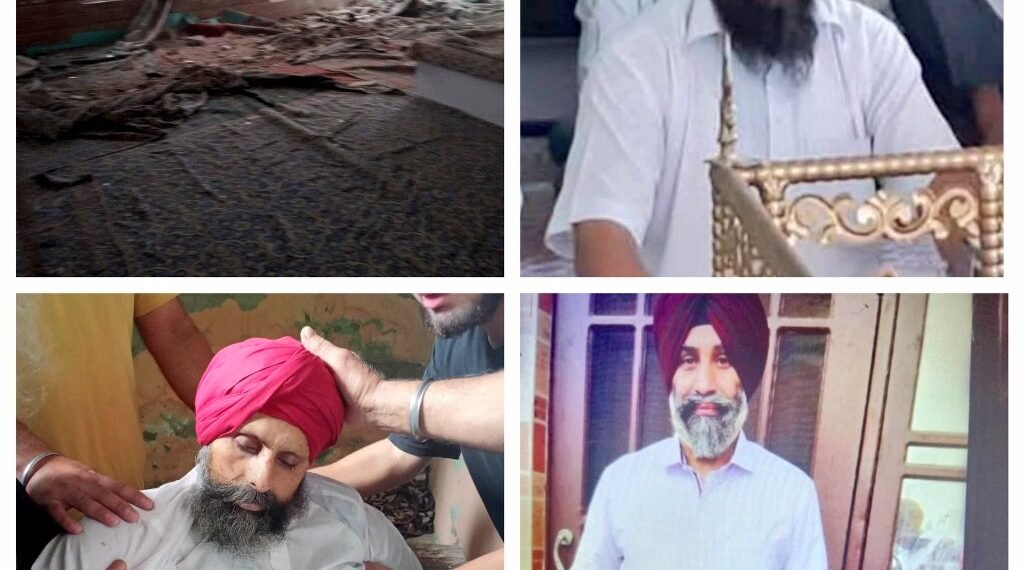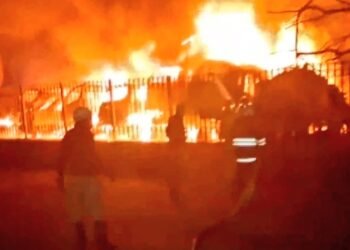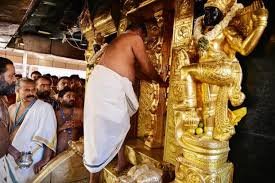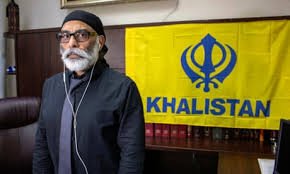Tragedy struck Poonch as Pakistani shelling, a response to India’s anti-terror strikes, killed 15 civilians and hit a Gurudwara, claiming the lives of three Sikh devotees. The attack on the religious site has been condemned, highlighting the escalating crisis and its impact on civilians.
By PC Bureau
new Delhi, May 7, 2025: Following India’s precision strikes under Operation Sindoor targeting terror camps in Pakistan and Pakistan-occupied Kashmir (PoK), the Pakistan Army retaliated with heavy artillery and mortar shelling along the Line of Control (LoC), causing widespread civilian casualties and infrastructure damage.
Among the dead are three Sikh devotees who were killed when a shell hit the Central Gurudwara Sri Guru Singh Sabha Sahib in Poonch. The victims have been identified as Bhai Amrik Singh Ji (a raagi Singh), Bhai Amarjeet Singh, and Bhai Ranjit Singh.
Shiromani Akali Dal (SAD) president Sukhbir Singh Badal condemned the attack in a statement on X (formerly Twitter), calling it an “inhuman assault” on a sacred religious site. He expressed deep condolences to the bereaved families and reaffirmed Sikh solidarity with the armed forces.
“We strongly condemn the Pakistani forces’ inhuman attack on the Central Gurudwara. The loss of innocent Gursikhs is a tragedy for the entire nation. Sikhs have always stood as the sword arm of India and will continue to do so,” Badal stated.
ALSO READ: Deadly Retaliation: Pakistan Shelling Claims 15 Innocent Lives on J&K Border
He called on the government to honor the deceased as martyrs and demanded compensation for their families.
At least 15 civilians, including four children, were killed and 57 injured as Pakistani forces targeted forward villages in Poonch, Rajouri, and Kupwara districts.
Poonch bore the heaviest brunt. Civilian areas—including Mendhar, Mankote, Balakote, Krishna Ghati, and Poonch town—sustained severe damage. Key structures such as the Gurdwara, Christ School, Poonch Fort, and several ancient temples were hit.
#WATCH | Poonch, J&K | Pakistan shell hit one corner of Gurudwara Shri Guru Singh Sabha, causing damage to one door and shattering a few glasses, says Narinder Singh, President of District Gurudwara Prabandhak Committee. pic.twitter.com/58VUVbcyjR
— ANI (@ANI) May 7, 2025
Among the identified victims are:
- Mohd Adil (Sagra, Mendhar)
- Saleem Hussain (Balakot, Mendhar)
- Balvinder Kour (33, Mohalla Sardaran, Mankote)
- Mohd Zain Khan (10) and Zoya Khan (12), Kalani village, Mandi
- Mohd Akram (55, Mohalla Sukka Katha)
- Amreek Singh, Ranjeet Singh, Amarjeet Singh (Mohalla Sandigate)
- Mohd Rafi (36, Kojra, Bandichechian)
- Mohd Iqbal (45, Baila village), a Muslim cleric
- Maryam Khatoon, Vihaan Bhargav, and two unnamed minors
The relentless barrage forced residents into bunkers. Many homes and vehicles were destroyed, with humanitarian conditions deteriorating quickly.
ALSO READ: The Night That Matt ers: Pakistan’s LoC Move Could Shape the Next Chapter
Evacuation Measures in Poonch
The Poonch district administration has established nine public shelter camps equipped with food, medical aid, and accommodation. Authorities are encouraging residents from vulnerable villages to relocate.
Shelter sites include:
- Caramel School, Chandak
- Dingla University Campus
- Ishat ul Uloom Chandak
- HSS Chandak, HSS Lassana
- GHS Sanai, GMS Sanai
- GHSS Seri Khawaja
- Polytechnic College, Sathra
Senior officials inspected the facilities to ensure readiness. “All logistics and support systems are operational,” said an official.
Regional Fallout and Escalation
Pakistan’s Prime Minister Shehbaz Sharif called India’s actions an “act of war.” In contrast, Indian officials defended Operation Sindoor as a “measured response” to the April 22 massacre. Strikes were reportedly carried out using Rafale jets and SCALP missiles launched from within Indian territory to avoid violating Pakistani airspace.
Prime Minister Narendra Modi has granted the military full operational freedom. Tensions remain high along the LoC.
In Pakistan-administered Kashmir, over 1,000 madrassas have closed, and hospitals are overwhelmed. Bunkers are being dug as residents brace for further conflict. In India, damage to civil infrastructure, including a mosque in Muzaffarabad, has been reported. Several airports—25 in total—have suspended operations, disrupting travel.
The United Nations, United States, United Kingdom, and other nations have urged both sides to de-escalate. UN Secretary-General Antonio Guterres warned of the “catastrophic risks” of a nuclear conflict. However, diplomatic channels remain limited, with no direct communication between New Delhi and Islamabad.
As the region teeters on the edge of a broader conflict, civilians remain the primary victims—trapped in a deadly spiral of retaliation, political posturing, and nationalist fervor.













